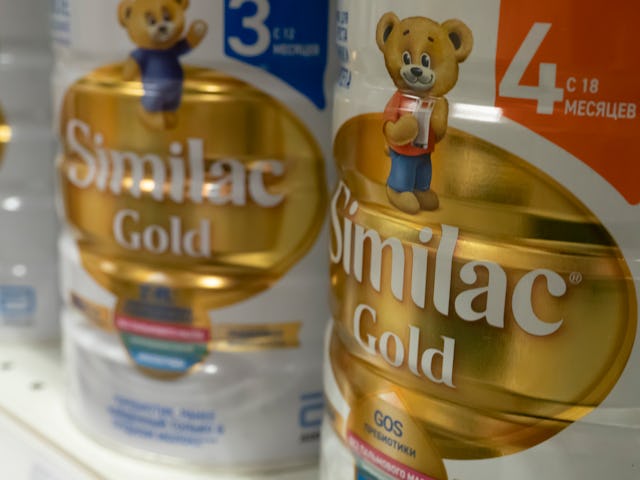Could FDA Inspectors Have Prevented Tainted Baby Formula From Hitting The Shelves?
Mistakes by the FDA and the baby formula manufacturer likely led to multiple infant deaths and hospitalizations.

On February 17, baby formula manufacturer Abbot issued a massive recall of several powdered infant formulas produced in its Sturgis, Michigan facility. The recall followed inspections by the Food and Drug Administration (FDA) that found evidence of 5 strains of cronobacter, a dangerous and deadly bacteria that led to 4 hospitalizations and two deaths of babies who consumed formula produced at the plant.
Now, in the wake of the tragedy, consumer and health experts are raising questions about the FDA’s inspection process and policies, especially during the pandemic, that could put them at fault for what happened.
Politico conducted its own investigation, which revealed the first strange fact, which is that the first report of a sickened infant came all the way back in September 2021, on the same day of the plant’s first inspection by the FDA since 2019. That inspection uncovered several minor issues, but no evidence of bacterial contamination of the infant formulas produced in the facility, raising questions about the inspection’s thoroughness.
By the time the FDA began another inspection of the plant in late January, the two infant deaths had occurred.
Why the four-month delay between inspections if there were reports of illness?
And why had the plant gone two years without an inspection before the one conducted in September 2021, when plants are usually inspected annually?
You can probably guess the reason for the skipped 2020 inspection. During the height of the pandemic, the FDA reduced inspections to those it deemed “mission critical,” according to the exposé by Politico. It’s unclear, however, why a plant that produces infant formula, the sole source of nutrition for a vulnerable population, was not considered ‘critical’. Politico reports that, according to agency spokespersons, such decisions were made on a case-by-case basis.
Some of the findings from the FDA’s more recent inspection are damning, such as evidence that Abbot found evidence of Cronobactor in its own internal inspections in September 2019 and June 2020. The company reportedly destroyed the affected product.
It is also unknown whether FDA inspectors who visited the facility in September were told about the first reported Cronobacter case, knowledge that would have impacted their work.
Sara Sorcher, deputy director of regulatory affairs at the Center for Science in the Public Interest, told Politico, “One of the lessons from this seems to be that FDA’s formula inspections could be a lot more rigorous. It’s clear that FDA caught a lot of things in [the most recent inspection] that they missed last fall.”
“The question is: Why didn’t they catch these things?” said Sorcher. “And if they managed to miss all that, what else have they been missing?”
An FDA spokesperson told Politico in a statement that the agency is planning to conduct a review of the incident “once the immediate public health risk is minimized.”
Another health expert, microbiologist Phyllis Entis, who runs the site eFoodAlert, pointed out that there’s plentiful evidence that both the manufacturer and the FDA weren’t doing their job right.
“Ultimately, it’s the company’s responsibility to maintain its equipment, and its food safety program, and all of the other ancillary stuff in proper working order. It’s the company’s responsibility,” she said. “It’s FDAs responsibility to oversee and make sure that that happens. So balls have been dropped all over the place.”
Here’s to hoping that these investigations pressure the FDA, Abbot, and other manufacturers of infant formula to improve their protocol, so that the next case of contamination is prevented by rigorous monitoring. Kids’ lives are literally at stake.
To see if formula you have purchased is affected by the recall, go to www.similacrecall.com or call 1-800-986-8540.